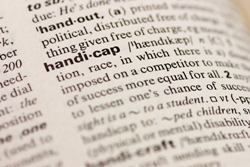| Profiles > Philanthropy > Helen Keller International | |||||||||||||||||
| Helen Keller International | |||||||||||||||||
|
|||||||||||||||||
| HKI works with a number of partners as equals, where each partner has a clear understanding of shared and respective roles. Each partner, through their tremendous efforts, adds something essential to nourish families, prevent needless blindness, and give children the chance to lead a full and healthy life. In the developing world, where blindness and malnutrition remain deeply rooted in complex circumstances, no organization can go it alone. As Helen Keller herself once said -- Alone we can do so little, together we can do so much | |||||||||||||||||
|
Services and Programs of HKI operate in a set of values that are intended to guide their work with vulnerable populations and promote strong internal and external work relationships. They build programs based on state-of-the-art scientific knowledge and local situational analyses, and rely on ongoing program evaluation to maximize their impact and further develop new scientific and programmatic knowledge. Its key program includes Eye Health and Malnutrition. Eye Health -- Although 80% of blindness is preventable, there are still more than 285 million people who are blind or visually impaired across the world. HKI’s eye health programs focus on the major causes of preventable blindness in the world. HKI programs address cataracts (the most common cause of blindness), refractive errors (including nearsightedness, farsightedness, and astigmatism), diabetic retinopathy, and trachoma and river blindness (both blinding neglected tropical diseases). | ||||||||||||||||
|
|||||||||||||||||
| Nutrition and Vitamin A Supplementation -- Nearly two billion people suffer from malnutrition either because their diet lacks essential nutrients or they simply do not have enough to eat. HKI’s nutrition programs give disadvantaged communities access to the vitamins and minerals they need to survive and live a healthy life. Its nutrition programs include vitamin A, iron, and zinc supplementation to fight micro-nutrient deficiencies; fortification of staple foods with essential vitamins and minerals; promotion of nutrient-rich foods through home gardening programs; health education, including infant and young child feeding practices; and prevention and treatment of severe malnutrition. | |||||||||||||||||
|
|||||||||||||||||
Operations and Accomplishments at a glance -- HKI works around the globe to address the urgent needs of those whose vision and health are at risk. The results are dramatic and wide-ranging -- school children in disadvantaged communities in urban and rural US can now see the blackboard and be successful in school; children in Africa regularly wash their faces to prevent trachoma; neglected tropical diseases are taken care of through partnerships with national health agencies, and much more. HKI perpetuates the indomitable spirit of Helen Keller, whose words-- the welfare of each is bound up in the welfare of all -- continue to frame its values and guide them even today.
|
|||||||||||||||||
Preventing vision loss in Bangladesh and beyond: A new model tried and tested in 2013 Bangladesh has one of the world’s largest diabetic population, but its healthcare system lacks appropriate screening and treatment models for diabetic retinopathy (DR) -- a widespread complication of diabetes and a significant cause of preventable blindness. Early detection requires regular screening and treatment, which can reduce the risk of severe vision loss by more than 90% in DR patients. However, this treatment preserves vision rather than improves it. Therefore, individuals rarely notice an immediate benefit and do not continue to follow up. To address this challenge, HKI has developed a new intensive case management (ICM) model to promote regular examinations and improve compliance with recommended treatments. With the support of sight-savers, HKI and its team in Bangladesh are currently conducting a randomized control trial to evaluate the model’s potential as a replicable and sustainable approach to prevent unnecessary vision loss in low resource settings. |
|||||||||||||||||
| How one can help In the past year alone, HKI touched the lives of 195 million people through their sight- and life-saving programs. Such a number can be difficult to achieve, but it is the supporters who make this possible. It is because of their firm dedication and commitment that HKI is able to provide critical support and services to those in need all over the world. These are the qualities that define HKI, but none of them is possible without the help from donors. Support from the masses makes possible science-based innovations and common-sense solutions that enable HKI to gain ground against complex challenges every year. |
|||||||||||||||||
| HKI, founded in 1915, will soon complete 100 years of saving sight and lives around the world. Helen Keller once said -- The unselfish effort to bring cheer to others will be the beginning of a happier life for ourselves | |||||||||||||||||
| Every minute, 72 children living in poverty benefit from HKI’s programs. HKI relies on the financial generosity of individuals, corporations, foundations, and governments to help them continue the legacy established by Helen Keller. There are also a number of other ways through which one can help. People can join the “Visions for the Future Legacy Society” by naming HKI in their will or as a beneficiary of their life insurance policy or remaining IRA funds. People can also help by purchasing eyewear from TOMS where a portion of the proceeds from the sale benefits ChildSight. | |||||||||||||||||
| TO DONATE VISIT: https://donate.hki.org | |||||||||||||||||
|
Credits
http://www.hki.org/reducing-malnutrition/ http://www.hki.org/preventing-blindness/ http://www.hki.org/press-room/awards-and-recognitions/ http://www.charitynavigator.org/index.cfm?bay=search.summary&orgid=3810#.UyGhW7VoKYU http://www.hki.org/file/resource/HKI_2012AnnualReport_ebookPDF_spreads_0425.pdf |
|||||||||||||||||









